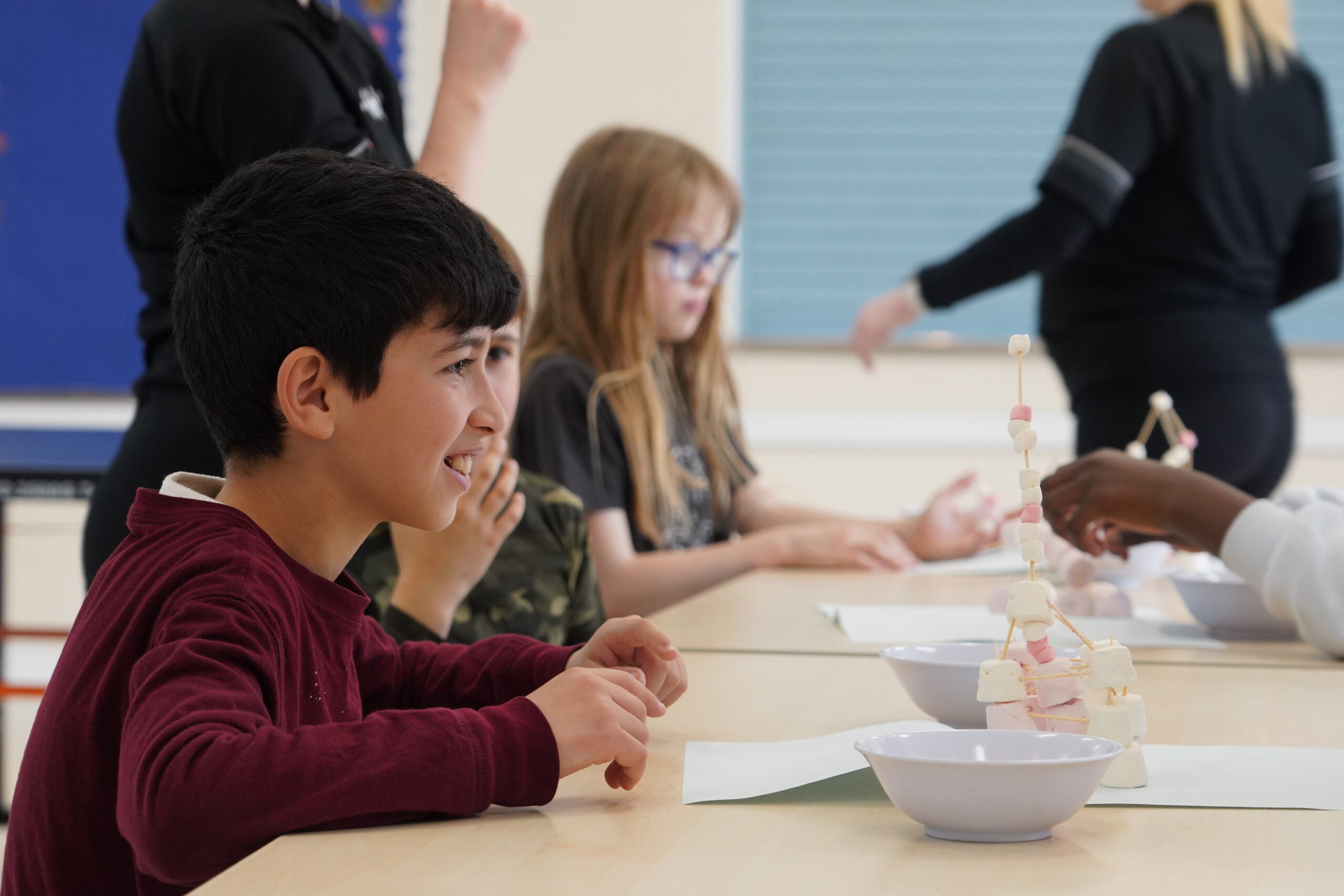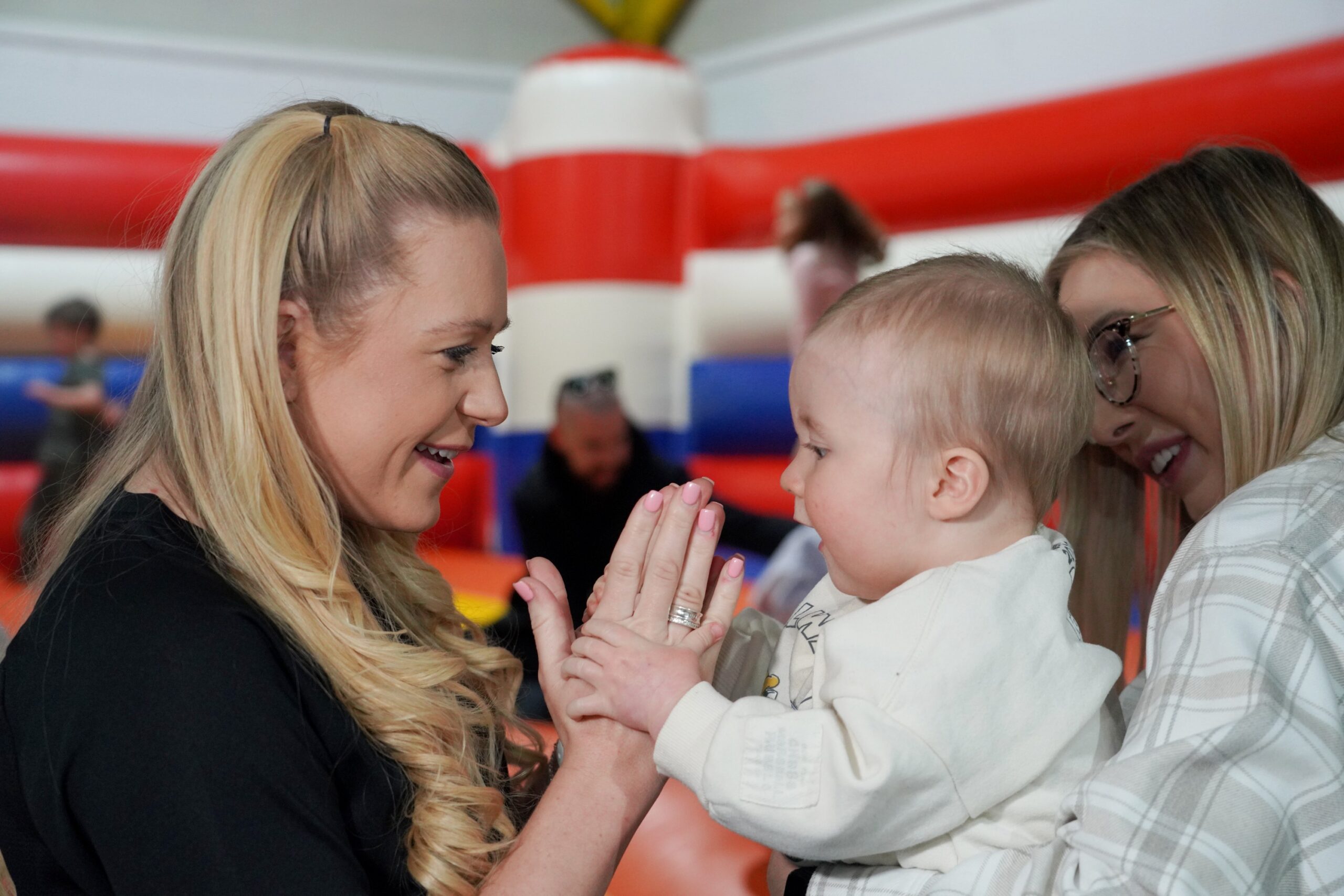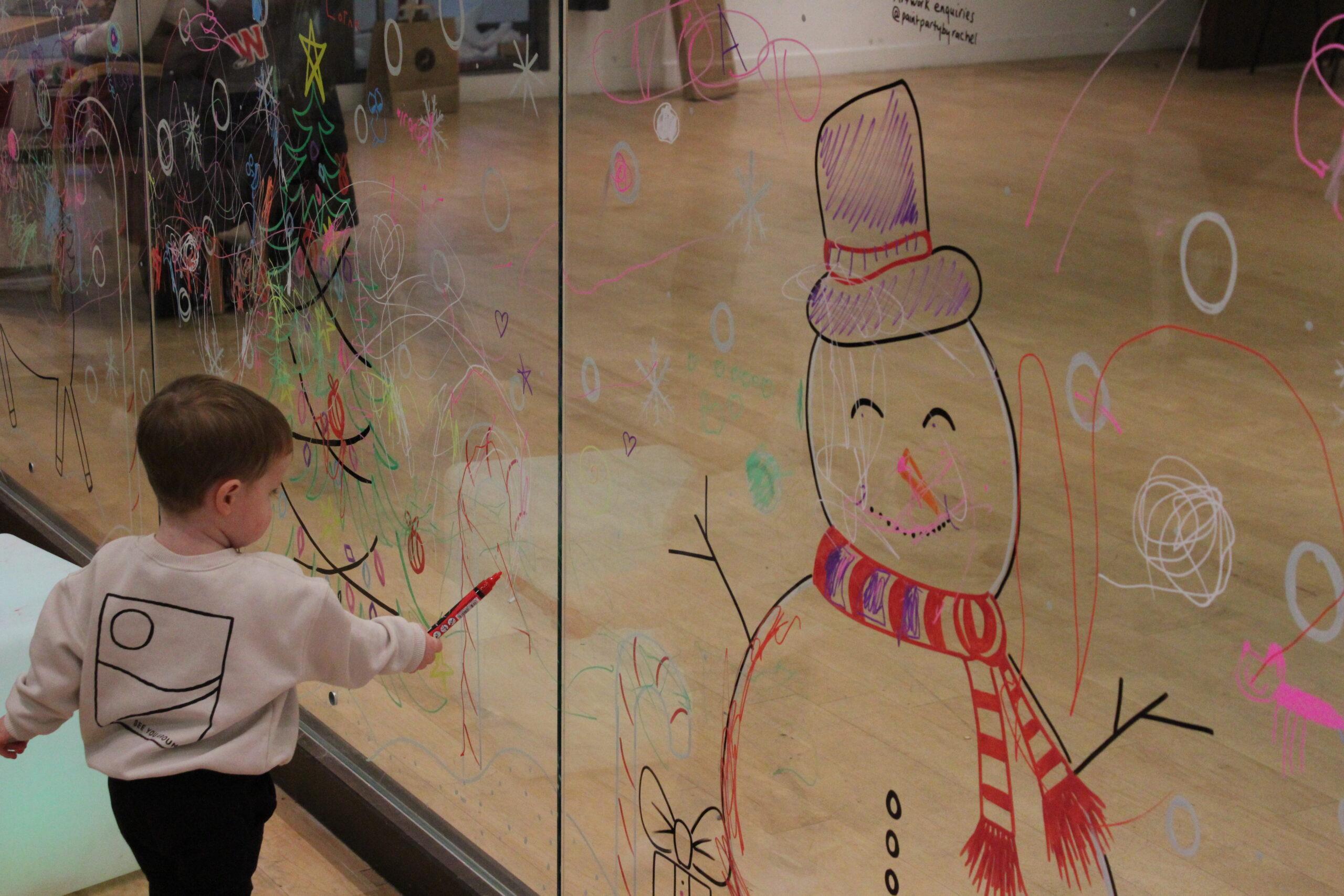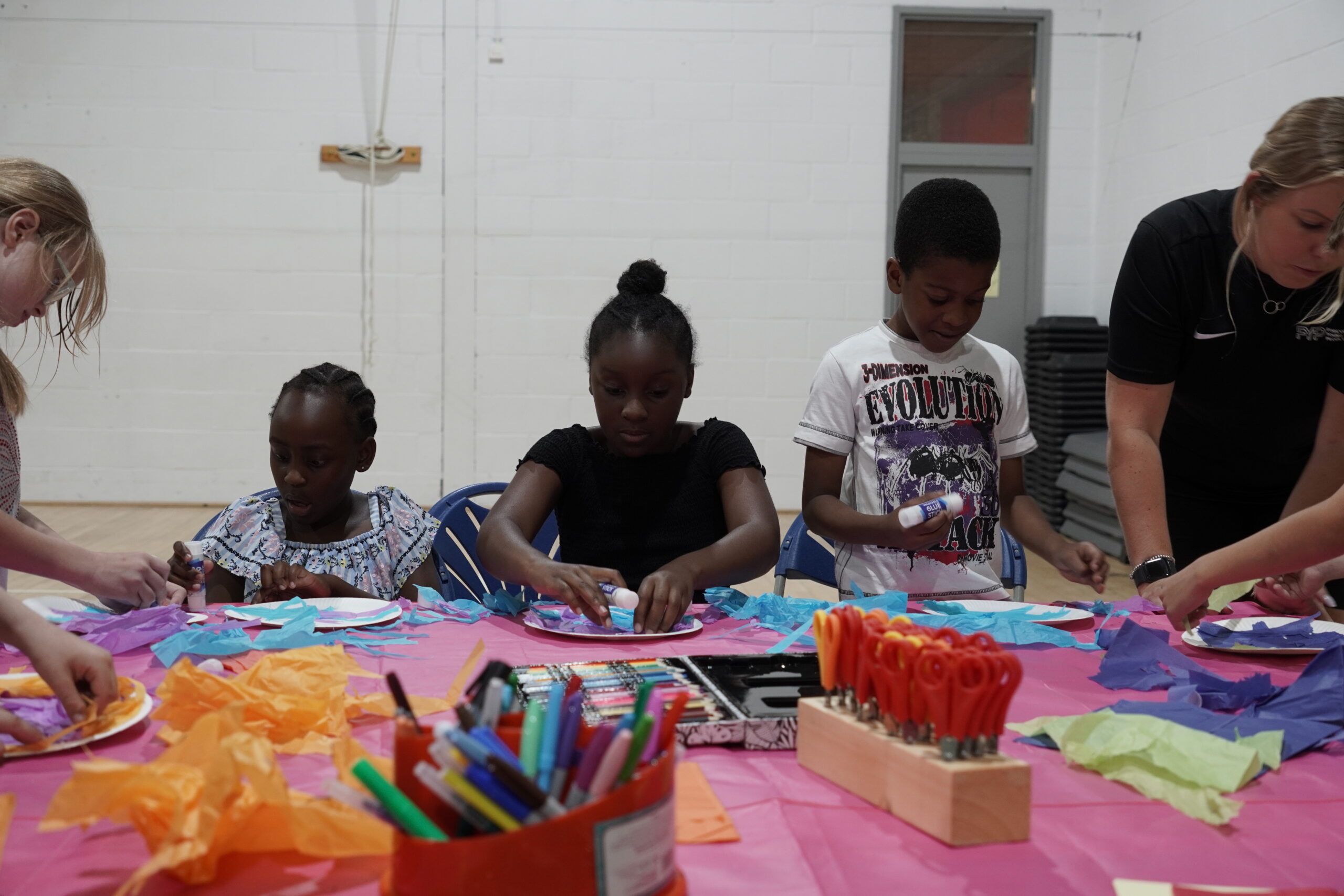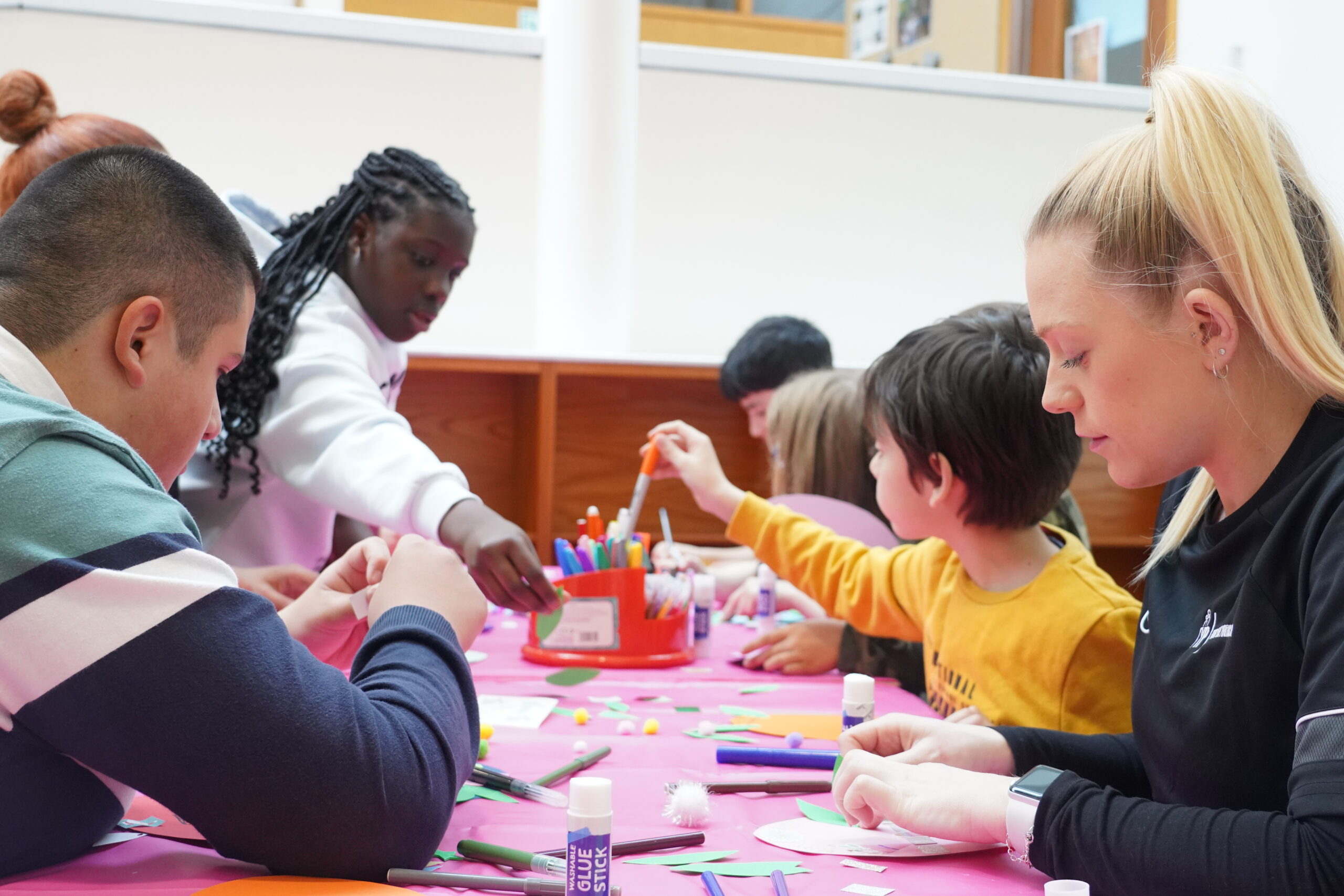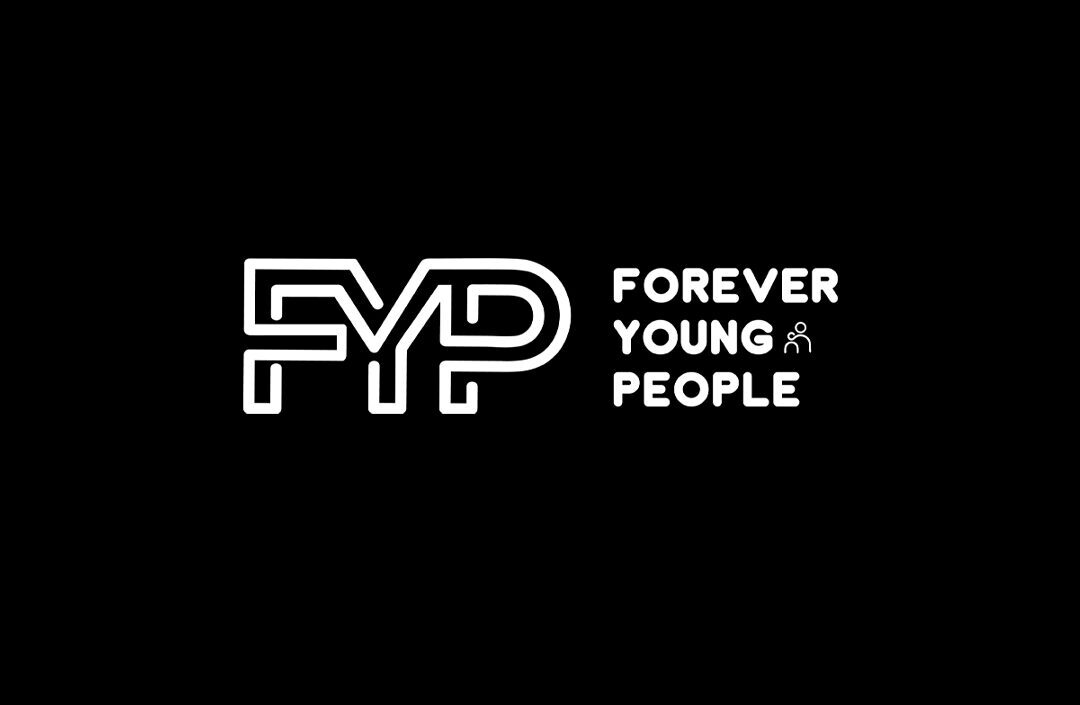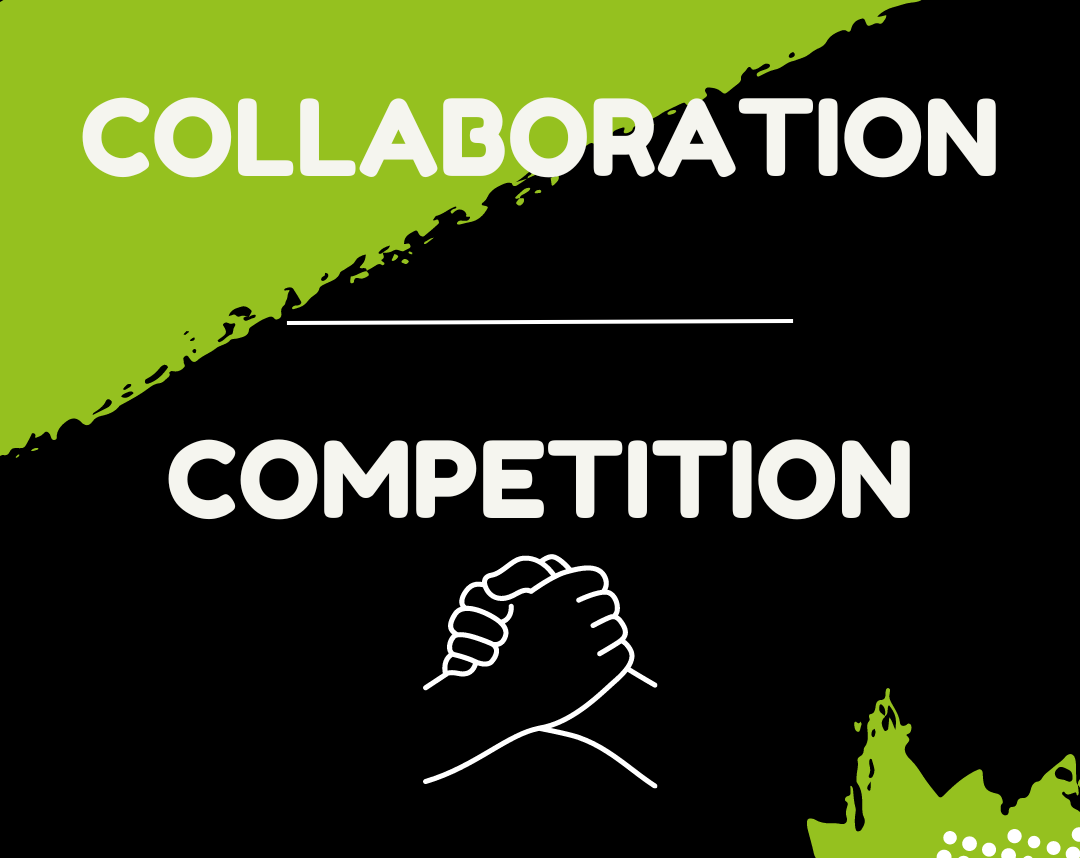Practical Tips for Becoming a Mentor for Young People Making a positive difference in a young person’s life can be extremely rewarding emotionally. When you take on the role of a mentor, you get to do just that, sharing your expertise and experience to help another individual. However, if you’re new to mentorship, you may be wondering how it works—and where to get started. This guide provides additional information about what mentorship requires and why it’s so valuable and gives you some practical tips to get started. Recognize the value of mentoring others Becoming a mentor isn’t just emotionally rewarding. It also offers tangible benefits for your career. Your experience as a mentor will allow you to improve your leadership, management, and interpersonal skills. Mentoring is also a practical way to grow your professional network and boost your profile and that of your organization. Finally, keep in mind that the people you mentor now may be future leaders of tomorrow. You are making valuable contacts who could one day be influential in your field, even if they’re just starting out now. Understand what it takes to be a good mentor Being a good mentor requires strong interpersonal and leadership skills. You have to be able to empathize and connect with the person you’re mentoring. Good listening skills are also important. Finally, it’s critical that you’re able to offer constructive feedback. You want to be able to help people and guide their path without offending them. This article provides additional tips on how to be a good mentor, including how to offer constructive feedback. For example, asking questions that stem from a place of genuine curiosity is often a good start. Master the soft skills required for mentorship Mentorship is largely about sharing your concrete experiences and industry knowledge. However, it also requires some essential soft skills. Listening, communication, and empathy are important. Emotional intelligence or emotional quotient, EQ, is also critical. According to Edgecumbe, EQ is generally helpful in the working world. It allows people to be better leaders. To develop EQ, you need to focus on key points like self-awareness, self-regulation, motivation, empathy, and social skills. Look for opportunities to mentor others There are many opportunities to mentor young people, for example, through your local church or school. There are also non-profits devoted to supporting young people that offer mentoring opportunities. For example, Forever Young People is a teenage mentoring program in Hertfordshire. You can also find people looking for mentors at industry conferences and professional events. Finally, online networks like LinkedIn and Meet A Mentor are great ways to connect with people in your field who may be seeking guidance. Consider getting a job that allows you to serve as a mentor If you discover that you really love mentoring, you may want to make a career of it. You can find charitable jobs that involve mentoring via online platforms. When applying for a job as a mentor, make sure to create a tailored CV and cover letter. You should share these documents as PDFs when applying, creating the most professional appearance. If you create the document as a Google Doc first, you can quickly save it as a PDF to convert your Google Doc using this handy tutorial. Mentorship can be a wonderful way to expand your horizons and gain emotional satisfaction. It also offers practical benefits for your career, from helping you to expand your network to allowing you to connect with future business leaders. In the UK, there are many nonprofits that allow you to meet teens and other young people seeking guidance. The above guide offers some ideas to help. For more content about mentorship and helping young people, see our mentoring page. Share this blog! Thank you for reading this blog post. If you found it insightful or helpful in any way, why not share this with others online?
Importance of Community in Our Lives
Importance of Community in Our Lives If you want to go fast, go alone; but if you want to go far, go together. This African proverb beautifully summarises the spirit of togetherness and how it can help us grow and evolve into better human beings. There’s no doubt that all things are achievable alone, but the joy of doing things together makes the spirit of community all the more beautiful. Human beings are not meant to be alone; we’re social beings, and connecting with fellow humans not only helps us build relationships but is also good for our well-being. Since the beginning, humans have been drawn toward building communities, and even today, the community spirit reflects in different forms. Right from sports clubs to storytelling sessions to volunteering groups, humans are always looking for ways to bond with each other and strengthen their societal bonds. What Happens When We Distance Ourselves From Community? Belonging to a community is essential for us. Even as kids, all we wanted was to go outside and spend quality time with our friends. Somehow, as we grow older, we start withdrawing into our shells, cutting ourselves off from what we crave the most – being part of a loving and supportive community. Since we’re inherently social beings, our mind finds it difficult to wrap itself around the fact that we’re alone and disconnected. This, in turn, profoundly affects our perception of ourselves, and our mental and emotional health. How Can Being Part of a Community Help You? There are innumerable benefits of being part of a community. Forever Young People have listed the top benefits of being part of how belonging to a group of humans can help us in our lives. Let’s have a look: Sense of Belonging When we find individuals with shared interests and similar values, we feel at home with them. When we interact, communicate, and share our ideas and thoughts with like-minded persons, we realise that we’re not alone in this journey. And this makes us feel valued and accepted. A Safe Space Having a network to fall back on is always helpful. And all of us realised this the hard way during the pandemic, where all of us heavily relied on support from the community when we needed it the most. Being part of a community gives you a sense of hope – you know you’re never alone, and you always have people you can count on in times of need. It may not always be material assistance, but being part of a community ensures we always have emotional support. And when we receive abundance, we’re on the lookout to help others in need. The Right Influence Birds of feather flock together – it’s a simple quote, but it carries such deep meaning. When we’re in the company of like-minded persons, we’re also under a constant positive influence. This helps us realise that our life can be a lot better without negative thoughts or unhealthy habits. We begin to consciously invest in our well-being, prioritising ourselves and steering clear of things that drain us. New Learnings When we’re in a community, we’re not only encouraged to pursue our passions but also have the motivation to learn new things. It’s not necessary that a group of like-minded people will be completely the same – they will still have different interests, experiences, views, thoughts, and beliefs. Interacting with a group of similar (not same) people can help you develop new perspectives, hobbies, and interests too. Development of a Sharing and Caring Nature When you’re part of a community, you automatically feel responsible for all its members. You’re looking for ways and means to add value to the community, the space that makes you feel validated, safe and happy. Sharing does not limit just to material things – it goes beyond things and involves sharing thoughts, ideas, likes, and passions. Sharing positively impacts mental health and is known to boost positive emotions among humans. Increased Exposure When you mingle with a set of people extending beyond your personal space, you get access to many more people. This way, you grow your network and gain exposure to newer avenues and opportunities. With strong personal and professional relationships, your chances of coming across opportunities and succeeding at them increase. Boosts Emotional Intelligence A community is a dynamic unit because of the regular interactions between people. The constant interactions lead to the development of healthy relationships, which are key for coexistence in society. This also helps to improve emotional intelligence among people. With elevated emotional intelligence, we’re capable of enjoying successful relationships in our personal, professional, and societal lives. People who are part of a community know how to understand and manage not only their own feelings but also that of their fellowmen. A higher emotional intelligence quotient helps us better understand ourselves and others, making us more empathetic and understanding. Summing Up As youngsters, it’s great to start off early when it comes to being a part of the community. It brings an awareness of what is happening around us, which then helps us develop a sense of responsibility towards others. Being part of a community can help you feel valued, secure, empowered, and confident while giving you the boost you require to grow emotionally, educationally, and socially. So what are you waiting for? Choose your space – a space where you know you will grow, thrive, and flourish in your professional life and evolve into a better human being with every passing day! Come and join us as we host our Winter Wonderland Workshops in Partnership with Wonderful Welwyn Garden City. As part of their Christmas Light Event, we will be hosting our very own Winter Wonderland Workshops in The Howard Centre, next to WHSmith. • All activities free of charge • Festive fancy dress welcome! Howard Centre, WGC 12-4pm Saturday 19th November We look forward to seeing you
How to Spend a Mindful and Considerate Christmas This Year?
How to Spend a Mindful and Considerate Christmas This Year? Perhaps more than any other time of year, the holiday season encourages and facilitates contemplation, relational growth, spiritual sustenance, heartfelt celebrations, and an attitude of genuine appreciation. However, the holidays may also bring about significant levels of stress because of the many last-minute giving duties and to-do lists that must be completed. In this post, we want to share with you some recommendations that will help you embrace the Christmas season with purpose and experience the pleasure of thoughtful giving. These tips are conscious and sustainable, and we hope that you will find them helpful. Make preparations in advance and try to be more purposeful The first thing you should do to become more attentive, purposeful, and focused on what exactly is most essential is to make a plan for the future. It frees up both your time and your energy to consider the myriad of ways in which you might enrich the experience of giving gifts as well as the holiday season as a whole with greater meaning and happiness. You should get a notebook or use your Productivity Planner to write a list of everything that needs to be done, including the planning of holiday events and the preparation of holiday meals, as well as the shopping for gifts. The next step is to investigate the reasons behind why you are giving the presents and to consider what is meaningful to the receiver. Reflect on these questions: In what ways may the worth of a gift be understood and evaluated? How may your admiration and affection be translated into presents for the holiday season? How do you wish to share the good energy that you have with the individuals who are important to you? What are some alternative methods of giving and sharing that are not the same as routine practices? You will gain more clarity and comprehension on what you should prioritize if you write down your to-do’s, investigate the why behind the holiday festivities, and create a list of mindful gifts that will be truly appreciated. By doing so, you will be able to purchase with more purpose and responsibility, so avoiding the habits of consumerism as well as the overwhelming sensation of shopping at the last minute for presents that are only superficial for the sake of giving something. Support your neighbourhood merchants and shop locally Visit the stores in your neighbourhood, introduce yourself with a kind greeting, and look around to see what you can discover. Weekend farmers markets and craft markets are wonderful locations to purchase thoughtful presents, and by shopping at these markets, you are helping to support and maintain the families of those who own small businesses. Don’t throw away your cash on greeting cards There are some people who won’t agree with me on this, but if I have anything pleasant to say to someone, I always make sure to say it. A card is beautiful, but most people throw them away, and thus they wind up in the recycle bin (or the trash!) If you really must purchase a card, look for options that are manufactured from recyclable materials or that offer something back to others who are less fortunate. Be considerate of your environment Don’t tear the wrapping paper to pieces when you open your present. Keep the paper in reserve for another present. That’s how the vast majority of our parents raised us! When going for the rustic look in your residence, consider stuff already present at home. What about leftover pieces of cloth or the assortment of art supplies? Would anything like that be helpful to you? In the event that nothing else works, utilize a roll of recycled butcher paper and some string on hand. Choose some flowers or branches from the garden, and voilà! So simple but so kind and considerate as well! Avoid purchasing plastic toys and batteries for children All I’m going to say, without seeming like a total jerk to you, is this: batteries and plastics are two of the most harmful types of waste to the environment because of the poisonous and corrosive compounds that are present inside them. Unfortunately, the majority of both types of waste will eventually be dumped in landfills! Choose more environmentally conscious decisions, such as purchasing toys made from repurposed wood materials and selecting toys with a longer lifespan that can be passed on to other children or made a donation when they are no longer played with. In this way, you will be able to teach your children some good lessons about conserving the environment and being thoughtful towards it. Donate with your whole heart We are of the opinion that sometimes the most meaningful presents are not physical items but rather life-altering events, real sensations, and genuine emotions. Consider the ways in which you might make a donation from the heart. Give someone the gift of forgiveness, and then let go of your hurt. Demonstrate thankfulness, and pay attention to the smallest of things. Do something loving for someone to remind them how much you care about them and how much you value your connection with them. We feel that honest talks that originate from the heart, together with handwritten letters and notes, are the best way to demonstrate a thoughtful connection and give a unique touch to the festivities around the holidays. Write down the things you are thankful for that they have done for you, share your memories with them, recognize significant events, and perhaps add some photographs. Carry out these steps in seclusion for at least a few months, and preferably for a whole year. Additionally, you might reach out to the relatives and friends of your deceased loved one and request that they write letters of condolence and expressions of gratitude in a diary. Choose a memorable occasion and present them with the gratitude diary as a present. Imagine how a plain
Be Curious, Not Judgmental
Be Curious, Not Judgmental Everyone has a unique story, perspective, and life experiences that contribute to who they are. We often meet people from vastly different backgrounds, with values and cultural norms that may vary drastically from our own. As we go through our lives meeting new people, it’s natural to form opinions of them based on our observations: What they’re wearing? How do they act in public? Instead of succumbing to judgments or harmful stereotypes about others, embracing curiosity can open us up to a world of discovery and compassion for others (and for ourselves). In this blog post, let’s explore the impact being curious instead of judgemental towards other people (and towards yourself) can have on your life! How Does this Work? The human mind is a meaning-generating engine that is continually forming hypotheses, passes judgments, and searches for recurring patterns. This is not a character flaw in and of itself – rather, it was a protective mechanism that kept humans safe for a very long period while we developed. On the other hand, these same characteristics may not serve us well in our interpersonal interactions. Our internal narratives have the potential to be biased, self-destructive, or even cause harm to another person. All three of these outcomes are possible. In the end, our opinions may be the lens through which we see the world, and this lens is, at best, cloudy and, at worst, completely opaque. How Is It to Be Curious and Not Judgemental? I have to constantly do self-examinations in order to work on being less judgemental and more inquisitive. As a result of doing so, I have discovered that it is astounding how many of my presumptions turn out to be incorrect. Being judgemental takes a lot more effort, is less fun, and wastes a lot more energy than being interested, which is something else that I’ve picked up along the way. The more we know about a subject, the more we are able to see things from other people’s perspectives, and the more we question things, the more we will understand both the truth and the wisdom behind them. As the world continues to move at a breakneck speed, those in positions of authority have a continuing need to seek out truth and wisdom. It is to the benefit of leaders to be interested, to avoid passing judgment, and to avoid placing too much stock in what has been successful in the past. How Are You Going to Avoid Being Judgemental While Yet Being Curious? When we let curiosity take the place of judgment, we are able to cultivate greater compassion, understanding, and empathy – this leads to a life that is better and more fulfilling for you! Be More Open Concentrating on grasping the other person’s perspective is one of the most efficient methods to avoid being judgmental while retaining one’s natural sense of curiosity about the world. In order to do this, I make it a point to engage in the practice of active listening, which is paying close attention to the words and body language of another person while also participating in a conversation by way of questioning. This enables them to feel like they are being heard while also helping me obtain a better grasp of their viewpoint. When I’m talking to someone about a topic or a problem, I make it a point to avoid jumping to conclusions based on my own perspectives or the things I’ve been through. Instead, I make it a point to have an open mind and be prepared to consider other points of view. Be Conscious of Who You Are Being conscious of the ways in which my own feelings might colour my perspective of other people is another essential component of avoiding passing judgment. It is important for me to recognise that these reactions are only natural and that it is key for me to find healthy coping mechanisms so that I can view conversations without any preconceived notions or biases. When we are feeling overwhelmed or stressed out by life events, it can be easy for us to react harshly toward others who may not share our views or understand our feelings. When this happens, it is important for me to recognise that these reactions are only natural and that it is important for me to find healthy coping mechanisms. For instance, if I am feeling particularly emotional before having a discussion with someone about a contentious subject, then I will take some time for myself beforehand to calm down and clear my head so that I can approach the conversation with as much objectivity as possible. This will allow me to approach the conversation with the most amount of emotional distance possible. Go Beyond Your Comfort Zone Participating in activities that are beyond one’s comfort zone is, last but not least, an efficient method of avoiding judgment while simultaneously maintaining one’s natural curiosity. People may become more conscious of their own biases and prejudices by engaging in activities that are out of the ordinary or that they are not used to. This can help them see events from multiple perspectives. We may become more tolerant of people who are different from us if we challenge ourselves to go outside of our comfort zones and learn more about the cultures and ways of life of people from other countries and communities. Here are some tips to achieve these targets more easily: Give things a chance that you typically wouldn’t, such as trying a new sort of cuisine or music that you wouldn’t generally listen to Compile a complete list of the facts Be interested in why you may be feeling a certain way about a scenario rather than passing judgment on whether it is “good” or “bad.” Switch “Why?” to “Why Not?” in your question Instead of criticising anything that is outside of your comfort zone by inquiring “Why?” about it, review the
Why You SHOULD Get A Mentor
Why You SHOULD Get A Mentor Do you feel like you’re not getting the results that your company would expect from you? Do you find yourself asking, “Am I doing this right?” or “Is what I’m doing even worth it?” Have no fear. You are not alone. Just keep in mind that most successful people have mentors to help them reach their goals. And really, why shouldn’t someone who is struggling with these same issues? The benefits of having a mentor are overwhelming, so it’s no wonder that more people are looking for one. A mentor can help you identify your strengths and weaknesses, provide advice on how to improve, show you the ropes in your new field or industry, and support you when things get tough. But before you make the move, let us show you EXACTLY how a mentor can be your most valuable investment. Third-Person Perspective Oftentimes, we may fall into the thoughts that we have all the skills and knowledge needed to do everything on our own. However, many times it is difficult to see the wrong in your ways, meaning that you automatically perceive everything you do as the best in the situation. Frankly, however, a more experienced third-person perspective may be a deal breaker! This is one of the most important things an experienced mentor can do – Give you a third-person perspective and feedback! And we all need that. New Skills Whatever endeavour you are in, odds are that it will require a certain level of soft and hard skills. As a more experienced individual that has been in many situations that demand an array of different skills, your mentor will more than likely be able to teach you new social and technical skills, that will ultimately help you improve. Think of teaching as a part of the mentorship! Avoiding Mistakes Odds are that if you hire a mentor, he will have gone through the mistakes you are about to make, but can’t see through. If you give your mentor a clear vision of your pathway and plan, he will be able to identify possible gaps and mistakes and give you valuable insight. Remember that a mentor is a person with loads of experience who has been through a lot of hardship! Making Connections Usually, mentors are influential people that know others in high places, who can be useful for your endeavour. Think of your mentor not just as a teacher and an analyst, but also as a hotspot for the creation of valuable interpersonal relationships and connections. This is perhaps one of the biggest benefits of hiring a mentor! Final Thoughts No matter how well taught you are and how many technical and social skills you have, there is ALWAYS more to learn and improve. Hiring a mentor will allow you to get a professional, third-person perspective on everything that you do, with a precise analysis of possible mistakes. Besides creating a more clear vision and path to your goals, a mentor can help with your overall personal development, as well as the establishment of valuable connections with individuals and companies. And so… Why Don’t YOU have a mentor yet? See our mentoring page for more information. Share this blog! Thank you for reading this blog post. If you found it insightful or helpful in any way, why not share this with others online?
Achieving Emotional Balance
Achieving Emotional Balance In a dynamic world like ours where life seems to be moving faster and faster with so much to keep up with, life can get so stressful and no matter how positive we try to be, unexpected turns sometimes happen, leaving us overwhelmed. Emotions are an essential part of our being, and how we deal with both negative and positive emotions plays a major role in shaping our life. This is why emotional balance is important. It is the ability to stabilise our feeling and reaction in the face of unpleasant circumstances, rather than reacting automatically. Being emotionally balanced does not mean you don’t have unpleasant feelings; it means you can control your reaction towards them. If you have been feeling elevated levels of anxiety and confusion about how to handle them, there are simple, actionable steps you can apply to better control your emotions. So let’s have a look at what you can actually do towards improving your emotional balance. Steps to Achieving Emotional Balance Being overly swayed with negative emotions will leave you anxious, stressed and cause unhealthy reactions. Furthermore, it can also develop unhealthy coping mechanisms, which is something you don’t really want. No matter how much you struggle with this, you can achieve emotional balance by applying the following strategies. 1. Be Self-Aware Being self-aware helps you identify your weak spots, cultivate healthy habits, and let go of the not-so-good ones. This helps you recognise the emotions you are feeling and the reactions they trigger which is essential for better emotional health. Once you recognise these emotions, acknowledging the negative feelings rather than suppressing them is a way to deal with them. This way, you start to brew a healthy relationship with your emotions and are able to catch any automatic reaction of yours. It is helpful to verbalize how you feel at that instant, e.g. “I am angry at this situation”, “I feel scared”. Naming your emotions nullifies their power and makes you react more consciously. If you find this difficult, try journaling, this is another way to let out your feelings. 2. Develop a Healthy Sleeping Habit Inadequate sleep can put you in a foul mood, which means that the body requires sufficient sleep for emotional and physical wellbeing. Though some circumstances can cause you to promote insomnia, it is crucial to find ways to increase your chances of a good night’s rest. If you have difficulty sleeping, there are some routines you can start to improve your quality of sleep. Try to develop a sleeping pattern and stick to it, reduce caffeine intake, and avoid taking your devices with you to bed. Also invest in the setup of your bedroom, great lighting, and comfortable beddings, as well as pre-bed meditation and breathwork. 3. Practice Gratitude Finding things to be thankful for will improve your outlook on life It could be difficult to see the good in inconvenient situations but focusing on the positive, no matter how little, improves your emotional state. Pause at intervals throughout the day to identify things you are grateful for. Make sure you are genuine with your feelings, and if you don’t have something to be thankful for currently, think about any moment in the past you loved. This is a good way to achieve emotional balance. 4. Learn to Manage Stress Identifying the signs of stress and devising effective management techniques help with emotional balance. When distressing situations occur, try to spot your reaction, and learn to pause before responding. Your breathing can serve as pointers to your stress level if you find yourself breathing irregularly or erratically, and take deep breaths to regain control. Meditation and yoga are also perfect stress management strategies, as it is a great tool for emotional balance through self-reflection and self-discovery. Conclusion Remember that the difficult times are only temporary, and are a normal part of life. The onus then lies on you to acknowledge these feelings and find the right balance to work through them. If you are having a hard time controlling your emotions, practicing the tips in this post will help you become more emotionally balanced, so do consider those! Share this blog! Thank you for reading this blog post. If you found it insightful or helpful in any way, why not share this with others online?
“Approaching Your GCSE Exams: Tips for Success and Keeping Perspective”
“Approaching Your GCSE Exams: Tips for Success and Keeping Perspective” If you’re a young person who is about to sit your GCSE exams, you might be feeling overwhelmed, nervous, or stressed. It’s perfectly normal to feel this way – after all, your GCSEs are an important milestone in your academic journey, and they can have a significant impact on your future. However, it’s important to remember that you have the power to take control of your GCSEs and approach them in a way that will help you succeed. Here are some tips to help you as you approach your GCSE exams: 1. Start early The key to success in your GCSE exams is preparation, and the earlier you start preparing, the better. Start revising as soon as possible, and make a study plan that covers all the topics you need to know. Break your revision down into manageable chunks, and give yourself plenty of time to cover everything. 2. Use different revision techniques Everyone learns differently, so it’s important to find revision techniques that work for you. Try a variety of methods, such as flashcards, mind maps, or practice questions, to see what helps you to remember the information best. 3. Stay organised Keep track of your revision schedule, deadlines, and exam dates using a planner or calendar. This will help you to stay on top of your revision and make sure you don’t miss any important deadlines. 4. Take care of yourself It’s important to look after yourself during the exam period. Make sure you get plenty of rest, eat healthily, and exercise regularly. Taking care of your physical and mental health will help you to stay focused and perform your best in your exams. 5. Practice past papers Practicing past papers is one of the most effective ways to prepare for your exams. It will help you to familiarise yourself with the format of the exam and the types of questions you can expect. It will also help you to identify any areas where you need to improve. 6. Seek help if you need it If you’re struggling with a particular topic, don’t be afraid to seek help. Talk to your teacher, classmates, or a tutor for extra support. There are also plenty of resources available online, such as revision guides and videos, that can help you to understand difficult concepts. 7. Stay positive Finally, it’s important to stay positive and believe in yourself. You’ve worked hard to get to this point, and you’re capable of achieving great things. Remember to take breaks, relax, and stay positive throughout the exam period. It’s also important to remember that while GCSEs are important, they shouldn’t be the only measure of your potential or future success. Your GCSE results may open doors to certain opportunities, but they don’t define your worth or limit your potential. Many successful people have overcome academic setbacks or pursued alternative routes to achieve their goals. So, while it’s important to take your GCSE exams seriously and do your best, don’t let the pressure of exams make you feel like your future is completely dependent on them. There are many paths to success, and as long as you work hard, stay focused and remain open to new opportunities, you can achieve your goals regardless of your GCSE results. Remember, success is not only about grades; it’s about perseverance, dedication, and having a positive attitude towards life. In conclusion, your GCSE exams are an important milestone, but they don’t have to be overwhelming. By following these tips, you can approach your exams with confidence and give yourself the best chance of success. Good luck Share this blog! Thank you for reading this blog post. If you found it insightful or helpful in any way, why not share this with others online?
Ashley McKenzie: Empowering Youth with Forever Young People
Welcoming Ashley McKenzie: A New Chapter in Empowering Youth with Forever Young People We are thrilled to announce an exciting development at Forever Young People as we welcome the extraordinary Ashley McKenzie, the Judo Olympian, as our esteemed Brand Ambassador. This remarkable partnership marks a significant milestone in our mission to empower and inspire young minds around the world. With Ashley’s unwavering dedication, exceptional talent, and remarkable journey, we are confident that together, we will create a lasting impact on the lives of countless youth. A little into Ashley Mckenzie Numerous Grand Prix and Grand Slam medals, two times European medallist, gold at the 2014 Commonwealth Games in Glasgow, and eight consecutive British championships are just a few of Ashley’s accomplishments. Ashley participated in her third Olympic Games in Tokyo in 2021. At the Commonwealth Games in 2022, Ashley took home a gold medal. A playground altercation over a Pokemon card drove Ashley to his neighbourhood judo club, where he first learned judo. He credits judo with saving his life and controlling his ADHD symptoms because he was born with a hole in his heart that required life-saving surgery when he was just a baby. Under the direction of coach Luke Preston, Ashley practises judo at the Camberley Judo Club in Surrey. Ashley McKenzie, who is well-known for his charisma both on and off the mat, offers a novel personality to the Judo discipline. His difficult upbringing and ongoing fight with ADHD motivate his ambition for achievement. Despite these difficulties, Ashley’s natural talent ensures that he continues to be regarded as one of Team GB’s top Judo talents. Ashley most recently had appearances on MTV’s Celebrity Ex On The Beach and Mission Mudder, both of which were broadcast on Sky Sports Mix, along with five other Olympians. Additionally, he has made appearances on the BBC’s Celebrity Eating With My Ex and Channel 5’s Celebs on the Farm. Empowerment: At Forever Young People, we think that every young person has the ability to succeed. Ashley McKenzie’s story shows the power of chasing aspirations with unflinching persistence and perfectly resonates with our fundamental principles. Ashley has consistently shown the tenacity and zeal needed to push beyond challenges and achieve the heights of achievement, from his early years to his Olympic glory in judo. He has won seven British championships, won the bronze medal at the European Championships twice, and he has competed for Team GB in numerous international events. Embracing Diversity: Forever Young People’s core values are diversity and acceptance, and Ashley McKenzie’s path is a shining example of the virtues of doing so. Ashley will foster unification among young people from all backgrounds and champion the value of inclusivity in his capacity as an ambassador. He is the perfect spokesperson for embracing diversity and creating an environment where everyone feels appreciated and empowered because of his personal experiences and worldwide effect. Resilience and Perseverance: The path to success is often filled with challenges, setbacks, and moments of doubt. Ashley McKenzie’s journey is a testament to the power of resilience and perseverance. Through his unwavering commitment to his sport, Ashley has faced adversity head-on, constantly pushing boundaries and surpassing expectations. He has overcome injuries, setbacks, and fierce competition to achieve remarkable feats in Judo. His story will serve as an inspiration to young individuals, encouraging them to embrace challenges, learn from failures, and never give up on their dreams. Making a Difference: Forever Young People’s collaboration with Ashley McKenzie extends far beyond brand association. Together, we aim to make a tangible difference in the lives of young people worldwide. Through empowering initiatives, mentorship programs, and community engagement, we will work hand-in-hand to provide opportunities and support systems that enable youth to reach their full potential. Ashley’s involvement as our Brand Ambassador, with his impressive Judo achievements and global recognition, will serve as a catalyst for positive change, amplifying our efforts to create a better future for generations to come. Conclusion: The partnership between Ashley McKenzie and Forever Young People marks an exciting chapter in our mission to empower, inspire, and uplift young minds. With Ashley’s incredible journey, unwavering determination, and genuine passion for making a difference, we are confident that together, we will create a lasting impact. From his numerous Judo accomplishments, including two-time European Championship bronze medalist and seven-time British champion, Ashley’s achievements stand as a testament to his dedication and skill. As we embark on this journey, we invite you to join us in celebrating the power of dreams, diversity, and resilience. Together, we can empower youth worldwide and shape a brighter future for all. Find out more about Forever Young People. Share this blog! Thank you for reading this blog post. If you found it insightful or helpful in any way, why not share this with others online?
Happy Birthday Forever Young People
Happy Birthday Forever Young People FYP today is three years old! Wow. When you stop to think about your experience so far, it’s actually crazy! It is something that I struggle to, to sit and reflect but during my recent break, I gave myself the time to sit, think and reflect on the journey so far. I started out four years ago with the goal of making my work known, I didn’t know how I was going to do that, I just knew that I wanted to put myself out and I am so glad that I started. I am proud with how far we’ve come. I’ve gained a lot of knowledge, made lots of errors, failed a few times, and tried again, but I’ve never given up. Which is something I hope to inspire young people to do. It can be intimidating to start a business and put yourself out there. You discover a lot about who you are and at times, you will be overwhelmed with the findings. You’ll face challenges, therefore you’ll need to be flexible and open-minded to the experience and the journey. Although every year has its difficulties, this year has been another great year with FYP. The team has expanded with the addition of amazing people that have a lot of experience and passion. In addition to continuing our previous efforts, we have offered more workshops, mentored more children, and assisted more families. We have set up Dots Mum and Baby Group this February which is going strength to strength. We have fantastic partners who we collaborate and host even more community events with. The football team is now playing in the Premier Division in our area, and this year’s campaign is off to a fantastic start. Forever Young People also won our second Award at the Lord Lieutenants Entrepreneur Challenge as the highly commendable company at the event. As I reflect on my own both my personal and professional life, I have had the good fortune to meet and work with many excellent people from a wide range of origins, cultures, places, and circumstances. The most rewarding and fulfilling aspect of my life is working in this field because no two days, or even two people, are ever the same. However, the motivation for choosing to what I believe was a career path but now I feel, the feeling of a purpose that is driving me which stems from childhood and adolescent trauma and pain, which ultimately shaped my adult years for growth, healing and lifelong learning. Actually, all I really want is to be able to do the things I needed to do during my teenage years. Teenage development is challenging enough without the added pressures of school, the future, friendships, romantic relationships, families, Social media and the elevated standard that everything should be flawless. When you add sentiments, emotions, and painful experiences to life, it becomes far more difficult to process and regulate those thoughts, feelings and emotions. Sometimes you just can’t understand what’s going on in your head or in your life, but if you just having someone there you can talk to, to guide and to assure that things aren’t going to ruin your life, or simply just having someone tell you that everything will be okay, can and will help. I can see how this might have been beneficial looking back on my younger years. My main goal is to eliminate the stigmatisation of young people in both their communities and among themselves. Despite how beautiful technology has advanced over the last 20–30 years, we have disregarded our human desire to connect—and by that, we don’t just mean to WiFi, but to one another. It is now important to increase both our own and those around us’ awareness. Starting with mentoring and education is where we need to connect. Education can take many different forms; it’s not only about going to school and getting a diploma or a degree. I firmly believe that every day should be considered a school day. From the minute our eyes open in the morning until they are closed at night, there is something to be learned; we just need to start paying closer attention to everything around us. To inspire the younger generations to be better people and create a more hospitable earth, we need to educate ourselves on self-love, self-care, and breaking generational cycles. The term “Forever Young People” was chosen because, in my opinion, no matter how much a young person matures or grows, their core will always be considered “forever young.” The youthfulness of their zeal for what they do, their desire to impress, their openness to learning, and their desire to make a difference will always be present. The youth of today will shape tomorrow’s society, and they will also influence the generation after that, and so on. We need to act better today if we want a better tomorrow. The Greek saying states that “a society grows great when old men plant trees whose shade they know they shall never sit in.” We all need to play our role in this. I am grateful, proud and excited for what the future holds. Thank you to my partner, family, team, friends, mentors and to my partners who have supported and allowed me to push Forever Young People forward. Lets keep going. Love! Ash Share this blog! Thank you for reading this blog post. If you found it insightful or helpful in any way, why not share this with others online?
Embracing Collaboration Over Competition
Embracing Collaboration Over Competition In a world often driven by cutthroat competition, the tide is turning towards a more profound ethos: collaboration over competition. As we step into 2024, this transformative motto serves as a beacon guiding individuals, businesses, and communities towards unparalleled success. The Shift in Mindset Gone are the days when success was measured solely by outshining others. Today, the focus is shifting towards the collective growth that collaboration fosters. Embracing this ethos acknowledges that when we work together, the possibilities are not just expanded but unlimited. Building Stronger Networks One of the most significant advantages of prioritizing collaboration is the establishment of robust networks. By connecting and partnering with like-minded individuals and organizations, we create an ecosystem where knowledge, resources, and support flow seamlessly, benefiting all involved. Fostering Innovation Collaboration breeds innovation. When diverse minds and talents converge, they bring in a multitude of perspectives, sparking creativity and pushing the boundaries of what’s possible. In 2024, the emphasis on collaboration will become the catalyst for groundbreaking discoveries and technological advancements. Nurturing a Culture of Support Choosing collaboration over competition nurtures a culture of support and empowerment. Instead of viewing others as rivals, we celebrate their achievements and lend a helping hand when needed. This culture not only propels personal growth but elevates the collective potential of society as a whole. Business and Beyond In the business realm, the shift towards collaboration marks a pivotal turn. Companies embracing this ethos prioritize partnerships, co-creation, and shared goals. From start-ups to conglomerates, the emphasis on collaboration in 2024 will redefine success strategies, leading to sustainable growth and innovation. Impact on Communities At the heart of this motto lies its impact on communities. Whether local or global, collaboration fosters unity, compassion, and progress. Initiatives aimed at solving societal challenges flourish when diverse stakeholders come together, pooling their resources and expertise for the greater good. Embracing the Change Making the shift towards collaboration might require rewiring our mindsets and unlearning past notions of rivalry. However, the rewards it promises in terms of personal fulfilment, professional success, and societal progress are immeasurable. Conclusion As we embark on the journey through 2024, let us rally behind the mantra of collaboration over competition. Together, we can create a world where collective success is not just an aspiration but a reality—a world where collaboration becomes the cornerstone of our achievements, shaping a brighter future for generations to come. Lets go 2024! Share this blog! Thank you for reading this blog post. If you found it insightful or helpful in any way, why not share this with others online?

